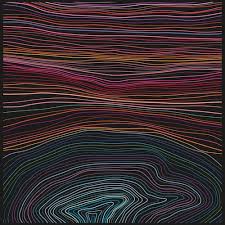It’s now been eleven years since Dungen set the internet ablaze with Ta Det Lungt, their third, breakthrough album that left listeners and critics at a loss for categorising this fuzzy, strangely north-European strain of psychedelic rock.
As it turned out the music of Dungen – the then-solo project of multi-instrumentalist Gustav Ejstes, now fully-formed group – was overwhelmingly informed by the psych lineage of his native Sweden; obscure at the time but becoming increasingly popular due to numerous reissues on labels like Subliminal Sounds. Yet whilst Dungen certainly had their reference points in the guitar heroics of Baby Grandmothers and Trad, Gras, Och Stenar, as well as the keyboard fantasias of Bo Hansson, these homegrown influences were merely a vehicle for Ejstes’ explorations into songcraft. Whilst prone to the odd freak-out, Dungen have always been underpinned by an unabashed pop sensibility, with each successive album further illustrating Ejste’s uncanny ability to conjure melt-in-your-ear melodies and joyful, jazzy song structures.
With these sonic principles still very much central to Dungen’s sound, Allas Sak finds them very much at odds with the contemporary psych landscape, in which the guiding tenets for most new groups are mainly limited to repetition and heaviosity. Dungen, with their proggy chops, hushed folkiness and hypermelodic poptimism, probably seem a bit lightweight in some quarters. Such appraisals, however, would be disastrously premature. Allas Sak is a breath of fresh, pine-scented air into the smoky basement of modern psych, as well as a testament to Gustave Ejstes continued inventiveness.
Since acquiring a full band, Ejstes’ subsequent albums with Dungen have naturally focussed on exploring the group’s dynamism and interplay. On Allas Sak however, the bandleader has turned back to the interest in production hinted at on earlier, sound collage-oriented albums, revealing his passion for Stones Throw hip hop in the album’s punchy drums and delicious soundscapes. Opener ‘Allas Sak’ boasts a soaring melody bounces and swings under an agile accompaniment of electric piano and compressed fuzz guitar, whilst the unabashed ‘Siesta Festen’ bears the influence of Swedish folk-pop star Mikael Ramel. Always a proponent of easygoing, jazzy tonalities, Ejestes has often been charged with veering into lounge-lizard territories. However on Allas Sak he manages to toe the line between melodic psych and easy listening almost perfectly. On ‘Franks Kaktus’ faun-like flute and percussion patterns introduce a Tropicalia flavour to that track’s heady Nordic psych-lounge feel, whilst ‘Flickor Och Pojkar’ manages to offset any sense of complacency with a rural-delic backdrop of zithers, backwards-masked percussion and clustered flutes.
Perhaps unavoidably after such a long period of inactivity (Dungen’s last album came out in 2011), there are some less successful moments to go with the overall feeling of rejuvenation on Allas Sak. ‘En Gang Om Aret’, one of the album’s few flaccid moments, insists perhaps a little too much on its own grandeur, and instrumental ‘En Dag Pa Sjon’, whilst boasting the ever-inventive fretwork of journeyman guitarist Reine Fiske, lacks the explosiveness of earlier Dungen jams. These are, however, small gripes for an album bursting with the feeling of a band refreshed. Lead single ‘Akt Dit’, with its disorientating chord progressions and utterly bombastic sax solo shows how a band can still innovate whilst sticking to their central formula, coming off like an infinitely more enjoyable, modern update on the Canterbury prog sounds of Caravan and Soft Machine. ‘Llus In I Min Panna’, meanwhile showcases Dungen’s ubiquitous, innate grooviness with its snarly leads and pretty twelve-string guitar chiming harmoniously. Album closer ‘Sova’ sees depths of psychedelic weirdness not approached by the band since Ejestes’ first solo efforts. Moving from a wavy flow of Pink Floyd/Procol Harum organ theatrics, through Dorothy Ashby-influenced harp-jazz, to a murky mush of layered sound, it’s a bit of an aural wonderland.
After a well-needed break, and with little fanfare, Dungen are doing what they always have done. It just so happens that they’re doing it with more confidence, more inventiveness, and more vitality. Whilst bands like Tame Impala made a quick buck imitating aspects of Dungen’s sound, Allas Sak shows that Gustave Ejstes will continue to perfect and update his craft.
<div class="fb-comments" data-href="http://thequietus.com/articles/18841-dungen-allas-sak-review” data-width="550">


